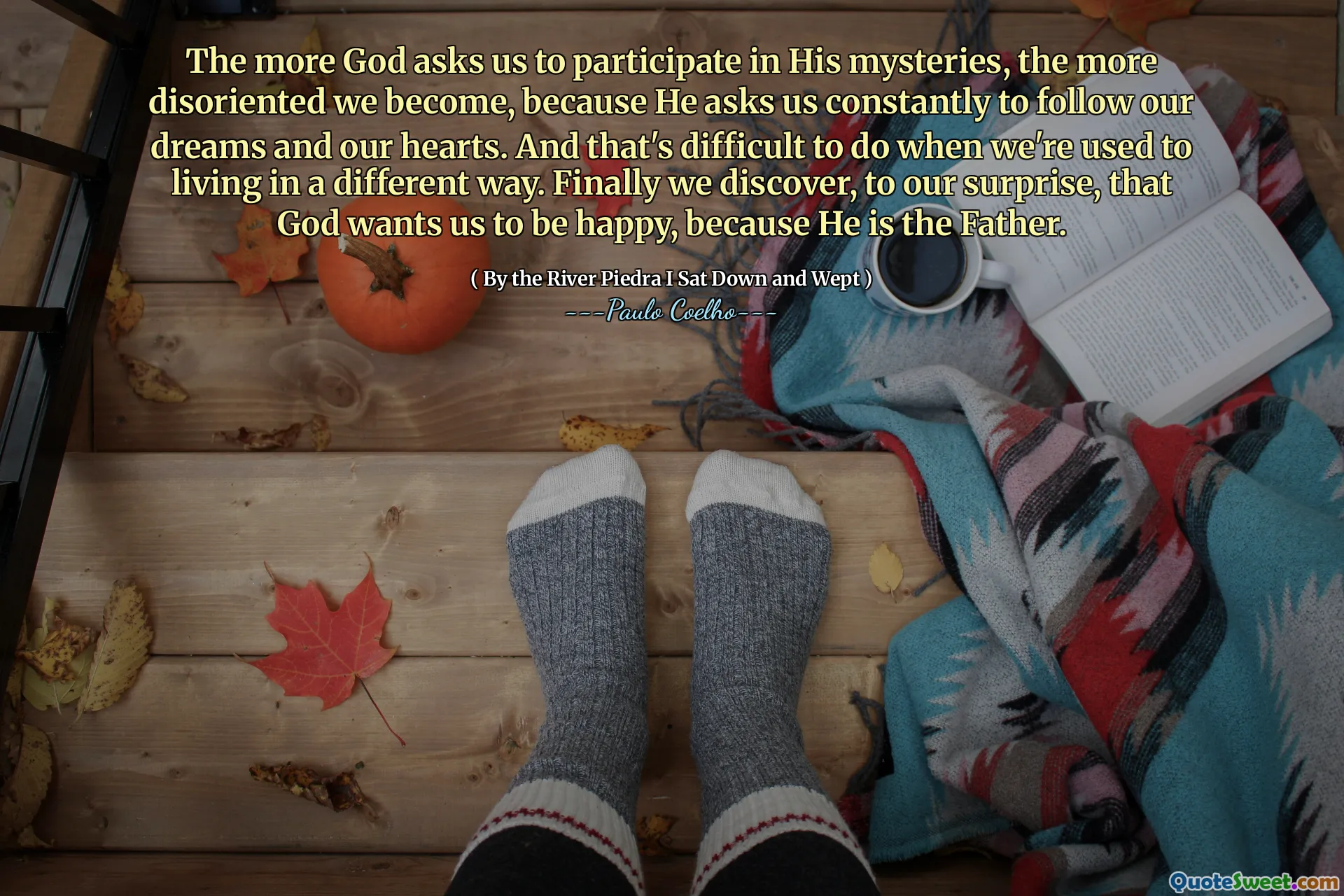
The more God asks us to participate in His mysteries, the more disoriented we become, because He asks us constantly to follow our dreams and our hearts. And that's difficult to do when we're used to living in a different way. Finally we discover, to our surprise, that God wants us to be happy, because He is the Father.
This quote beautifully encapsulates the profound journey of faith and spiritual discovery. It touches on a common human experience: feeling disoriented or uncertain when called to embrace something greater than ourselves. God inviting us to participate in His mysteries symbolizes the call to delve deeper into the spiritual or existential aspects of life—areas not always clear or easy to understand. The difficulty mentioned arises from the challenge of aligning our lives with our dreams and hearts, especially when societal norms or our own habits push us toward a more conventional path.
The transformation described in the quote—moving from disorientation to realizing God's true desire for our happiness—is powerful. It implies that God is not a distant authority but a loving Father whose ultimate wish is our fulfillment and joy. This realization is comforting and motivating because it reassures us that the struggles and uncertainties in our spiritual walk are part of a greater, loving plan.
From a broader perspective, the quote advocates for authenticity and courage in following our inner callings despite external pressures. It reminds us that embracing mystery and uncertainty is intrinsic to spiritual growth. By trusting that God, or a higher power, wants our happiness, we can find peace amid confusion and embark on a transformative journey that honors both our dreams and our spiritual selves.
This dual process of questioning and trusting enriches one's faith and life experience, allowing a deeper connection to the divine and to our truest selves.



